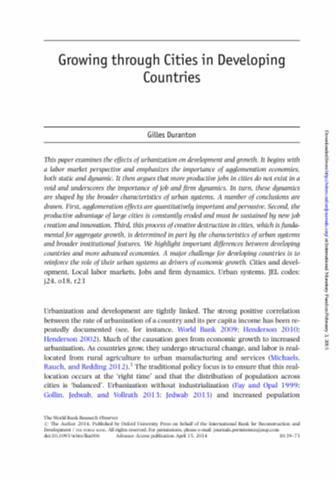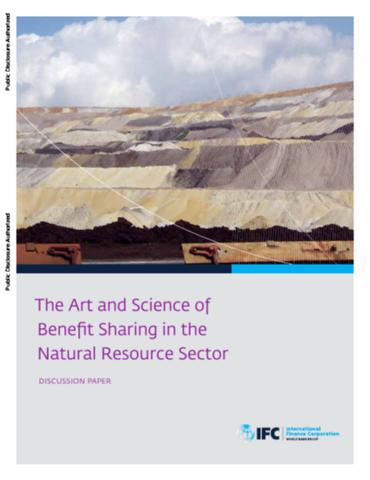The World Bank is a vital source of financial and technical assistance to developing countries around the world. We are not a bank in the ordinary sense but a unique partnership to reduce poverty and support development. The World Bank Group has two ambitious goals: End extreme poverty within a generation and boost shared prosperity.
- To end extreme poverty, the Bank's goal is to decrease the percentage of people living on less than $1.25 a day to no more than 3% by 2030.
- To promote shared prosperity, the goal is to promote income growth of the bottom 40% of the population in each country.
The World Bank Group comprises five institutions managed by their member countries.
The World Bank Group and Land: Working to protect the rights of existing land users and to help secure benefits for smallholder farmers
The World Bank (IBRD and IDA) interacts primarily with governments to increase agricultural productivity, strengthen land tenure policies and improve land governance. More than 90% of the World Bank’s agriculture portfolio focuses on the productivity and access to markets by small holder farmers. Ten percent of our projects focus on the governance of land tenure.
Similarly, investments by the International Finance Corporation (IFC), the World Bank Group’s private sector arm, including those in larger scale enterprises, overwhelmingly support smallholder farmers through improved access to finance, inputs and markets, and as direct suppliers. IFC invests in environmentally and socially sustainable private enterprises in all parts of the value chain (inputs such as irrigation and fertilizers, primary production, processing, transport and storage, traders, and risk management facilities including weather/crop insurance, warehouse financing, etc
For more information, visit the World Bank Group and land and food security (https://www.worldbank.org/en/topic/agriculture/brief/land-and-food-security1
Resources
Displaying 1016 - 1020 of 4906Growing through Cities in Developing Countries
This paper examines the effects of urbanization on development and growth. It begins with a labor market perspective and emphasizes the importance of agglomeration economies, both static and dynamic. It then argues that more productive jobs in cities do not exist in a void and underscores the importance of job and firm dynamics. In turn, these dynamics are shaped by the broader characteristics of urban systems. A number of conclusions are drawn. First, agglomeration effects are quantitatively important and pervasive.
The Art and Science of Benefit Sharing in the Natural Resource Sector
The purpose of this paper is to contribute to theunderstanding and discussion of how the costs andbenefits of natural resource development are sharedacross society. This paper presents how IFC, as both aninvestor and a development organization, determineswhether benefits and costs are shared reasonably, and how this assessment influences IFC’s decision to invest ina particular natural resource project. the goal of the paper is to promotea broad, constructive dialogue across stakeholders—governments, investors, civil society, and others—around benefit sharing.
Reconstruction and Recovery Planning in the Aftermath of Typhoon Haiyan (Yolanda)
This report summarizes the just-in-time
advice provided by the World Bank to the government of the
Philippines (GoP) immediately after Typhoon Haiyan. The Bank
helped the National Economic and Development Authority
(NEDA) develop the Reconstruction Assistance on Yolanda
(RAY) plan, providing recommendations and sharing
international good practice on key aspects of recovery and
reconstruction, including institutional arrangements for
Myanmar Enterprise Survey 2014 : Early Findings
World Bank carried out an enterprise
survey in Myanmar for the first time. Enterprise survey is
the world's most comprehensive company level data in
emerging markets and developing economies. The enterprise
survey is standardized, so it allows comparisons: (i) across
countries, and (ii) across time - when the survey is
repeated. Therefore, early findings are also a baseline for
measuring future changes. Through analogous enterprise
Investing in People to Fight Poverty in Haiti : Reflections for Evidence-based Policy Making
Despite a decline in both monetary and
multidimensional poverty rates since 2000, Haiti remains
among the poorest and most unequal countries in Latin
America. Two years after the 2010 earthquake, poverty was
still high, particularly in rural areas. This report
establishes that in 2012 more than one in two Haitians was
poor, living on less than $ 2.41 a day, and one person in
four was living below the national extreme poverty line of








